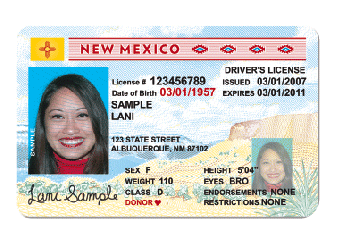FOR IMMEDIATE RELEASE
DATE: Monday, February 5, 2007
CONTACT: Whitney Potter (505) 266 5915 ext. 1003 Cell (505) 507 9898 or Paul Cates (212) 549-2568 Cell (917) 566-1294
ALBUQUERQUE – The American Civil Liberties Union filed a lawsuit today against the state of New Mexico on behalf of three lesbian couples seeking retirement health insurance for the domestic partners of lesbian and gay state employees.
“After serving the state for 25 years, I hoped to retire with the same peace of mind as my straight colleagues,” said Ellen Novak. “But retirement has meant that my partner has had to switch to costly private health insurance with inferior coverage at the point in our lives when we are most likely to face health problems. I worked just as hard as my colleagues, so it doesn’t seem fair that my family has been saddled with this burden.”
Novak, who has been with her partner Linda McCreary for 15 years, was forced to retire in 2004 after being diagnosed with a chronic lung condition. When she was still working for the state, she was able to provide McCreary health insurance as her domestic partner, but because of the state’s unfair policy of denying retirees domestic partner coverage, McCreary’s domestic partner coverage was terminated when Novak was forced to retire. Married couples in the same situation are permitted to continue to provide health insurance to their spouses after retirement.
The lawsuit filed today charges that the state’s policy of denying lesbian and gay state retirees equal health insurance for their partners violates the state constitution’s equality guarantees. Unlike their straight colleagues, lesbian and gay employees are barred from marrying in the state and therefore, in the absence of domestic partner benefits, are denied equal compensation.
“Lesbian and gay employees make commitments and form families just like straight employees, and their families have the same needs,” said Peter Simonson, Executive Director of the ACLU of New Mexico. “Health insurance is an important portion of how employees are compensated. It’s not right for the state to take care of straight families, but to force gay and lesbian families to bear the significant expense and suffer the inferior coverage of private health insurance at the point in their lives when they need health care most.”
In 2003, Governor Bill Richardson issued an executive order providing state employees, both gay and straight, with the option of providing their partners health insurance through domestic partner coverage. Under the order, domestic partner coverage is not available to employees after they retire, while spousal coverage is provided.
Proposed legislation, SB 502, which was introduced by Senator John Grubesic and will be the subject of a committee hearing this Wednesday, would close the loophole and provide benefits to the domestic partners of retired employees.
“The state legislature has the opportunity to spare taxpayers the needless expense of defending this lawsuit by passing this bill,” said Simonson. “The cost of providing the domestic partners of state employees with access to retirement health insurance would only result in less than a one percent increase in claims dollars paid out by the authority. And this nominal cost would likely be offset by the savings to the state on account of having more people insured.”
The other two couples involved in the lawsuit are:
Havens Levitt and Rebecca Dakota -- This Albuquerque couple has been together for 11 years, but have know each other for 25. Levitt, 54, has been a teacher for more than 23 years with the Albuquerque public school system. Dakota, 52, works for an anti-smoking campaign and as the part-time director of the Albuquerque Independent Business Alliance. Because her jobs are both part-time, she relies on Levitt to provide her health insurance. When Levitt retires, Dakota will no longer have access to health insurance and will be forced to pay for private insurance, which is especially expensive for someone of her age.
Mary Meyer and Hope Miner -- This Sandoval County couple has been together for 13 years and is raising two children together. Meyer, who manages the WIC Nutrition Program for Bernalillo and Sandoval Counties, has worked for the New Mexico Department of Health for 22 years. Miner retired from the Albuquerque school system in 2003 after serving as an elementary teacher for 25 years. When domestic partner benefits became available, the couple decided to have Meyer cover Miner as a domestic partner in order to avoid the double fees the couple had to pay towards their separate health plans. After Miner retired, the couple learned that the domestic partner coverage would no longer be available once Meyer retired. When Meyer retires, the couple’s monthly expenses will increase because they will both be required to contribute to their own health plans.
The legal team for the ACLU in
Novak and McCreary v. New Mexico is George Bach, staff attorney with the ACLU of New Mexico, Ken Choe, a senior staff attorney with the Lesbian Gay Bisexual Transgender Project of the ACLU, and cooperating attorney Maureen Sanders of Sanders & Westbrook, P.C.
Biographical information for all of the couples, a Q&A about the lawsuit and the legal papers filed today are available at
www.aclu.org/caseprofiles.
###
Related Documents
DP Retiree Benefits Complaint
.
Q & A
Memo: Cost of domestic partnerships for retirees in New Mexico
